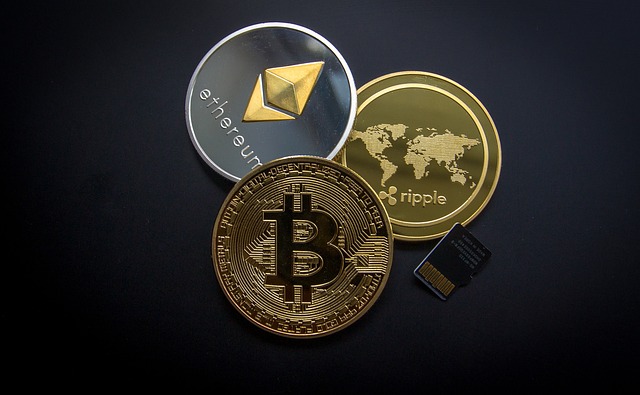The Cost of Trading Crypto on Robinhood: A Comprehensive Guide
In recent years, cryptocurrency has transitioned from a niche investment to a mainstream financial instrument. Among the platforms that have made it easier for everyday investors to access this emerging asset class is Robinhood. Known for its commission-free trading model, Robinhood has attracted millions of users eager to invest in cryptocurrency without the traditional cost associated with stock trading. However, understanding the actual cost of trading crypto on Robinhood involves more than just the absence of commission fees. In this article, we will dive deep into the intricacies of trading cryptocurrencies on Robinhood, exploring the hidden costs, the platform's structure, and how it compares to other trading options available in the market.

Understanding Robinhood's Business Model
To appreciate the costs associated with trading crypto on Robinhood, it’s essential to understand the platform's business model. Robinhood operates under a commission-free trading system, which means that users do not pay fees for buying or selling cryptocurrencies or stocks. This model disrupts traditional brokerage services, where commissions can eat away at investors' profits.
How Does Robinhood Make Money?
You might be wondering how Robinhood sustains itself if it doesn’t charge trading fees. The platform utilizes several innovative revenue streams:
- **Payment for Order Flow:** Robinhood sells its users’ order information to market makers. This practice is legal and common among brokerage firms. Market makers pay for those orders because they can profit from the price movements between when they purchase the asset and when they sell it to other buyers.
- **Interest on Cash Balances:** Robinhood earns interest on cash that remains in users’ accounts. This provides a steady revenue stream, especially given that many users tend to leave funds uninvested.
- **Premium Subscriptions:** Robinhood Gold, a subscription service, provides users with access to additional features, including margin trading and professional research tools, for a monthly fee.
The Real Cost of Trading Crypto on Robinhood
While the platform promotes commission-free trading, there are still costs that traders need to consider. Below are critical aspects that can affect the overall trading cost.
Spread Costs
One of the most significant hidden costs to trading cryptocurrencies on Robinhood is the spread—the difference between the buying price and the selling price of an asset. While Robinhood does not charge a commission, users can still incur costs through wider spreads compared to other exchanges. For example, if Bitcoin is priced at $50,000, Robinhood may offer a buy price of $50,100 and a sell price of $49,900. This $200 difference can be viewed as a cost traders incur for executing their trades.
Limitations in Access to Crypto Features
Robinhood has simplified the trading process, but this comes at a cost. The platform does not offer advanced trading features available on other cryptocurrency exchanges, such as stop orders or margin trading for crypto assets. This simplification could lead to missed trading opportunities for more seasoned investors. While I appreciate a user-friendly interface, I believe that offering advanced trading options alongside basic features could enhance the overall trading experience and possibly lead to better trading outcomes for users.
Deposit and Withdrawal Restrictions
Another critical factor that can affect trading costs is the deposit and withdrawal processes. While there are no fees for depositing funds into your Robinhood account, withdrawals can be less straightforward. Users may face limitations on when they can withdraw funds or transfer assets out of the Robinhood platform, which could result in lost opportunities if the market volatility is crucial. In my opinion, Robinhood should aim to provide more flexible withdrawal options to foster greater trust among users.
Crypto Wallet Integration
As of my last knowledge update in October 2023, Robinhood has introduced a crypto wallet, allowing users to send and receive cryptocurrencies. While this feature adds a level of functionality, it is still crucial to be cautious about the security and transfer fees associated with moving digital assets into external wallets. While I commend Robinhood for taking this step, other exchanges often provide more comprehensive wallet features that could appeal to those who prioritize security and control.
Comparing Costs: Robinhood vs. Traditional Exchanges
To understand the cost-effectiveness of trading crypto on Robinhood, it makes sense to compare it with well-established crypto exchanges like Coinbase, Binance, and Kraken.
Commission and Fee Structures
- **Coinbase:** This exchange charges a variable fee based on the transaction amount—typically around 1.49% for digital currency sales and around 3.99% for credit/debit card purchases. Users should also be aware that there’s a spread of about 0.50% on trades.
- **Binance:** Binance offers some of the lowest trading fees in the industry, pegging it at 0.1% for makers and takers. However, users would still have to pay a withdrawal fee, which varies depending on the cryptocurrency.
- **Kraken:** Kraken employs a tiered fee structure that can range from 0.26% to 0% based on trading volume over 30 days. Withdrawal fees also apply, which can differ by asset.
In contrast to these platforms, Robinhood’s approach may initially seem appealing due to its zero-commission structure. However, when you take into account spread costs, limited features, and withdrawal restrictions, the appeal diminishes for active traders.

Final Thoughts: Is Robinhood the Right Choice for Trading Crypto?
The decision to trade cryptocurrency on Robinhood ultimately comes down to the individual trader's needs and preferences. Robinhood provides a simple, straightforward interface that appeals to novice investors. Nonetheless, as I analyze the platform's cost structure and features, my personal view is that those who wish to engage in more strategic trading or need advanced features may want to explore alternatives that offer more flexibility and lower inherent costs.
Cryptocurrency remains a rapidly evolving investment landscape, and staying informed about the costs associated with trading is paramount to achieving success. As the sector matures, I believe that platforms like Robinhood might evolve to stay competitive, potentially improving their features and cost structures. Until then, investors should carefully weigh their options before committing significant capital on any platform, ensuring they choose the one that aligns with their trading style and objectives.